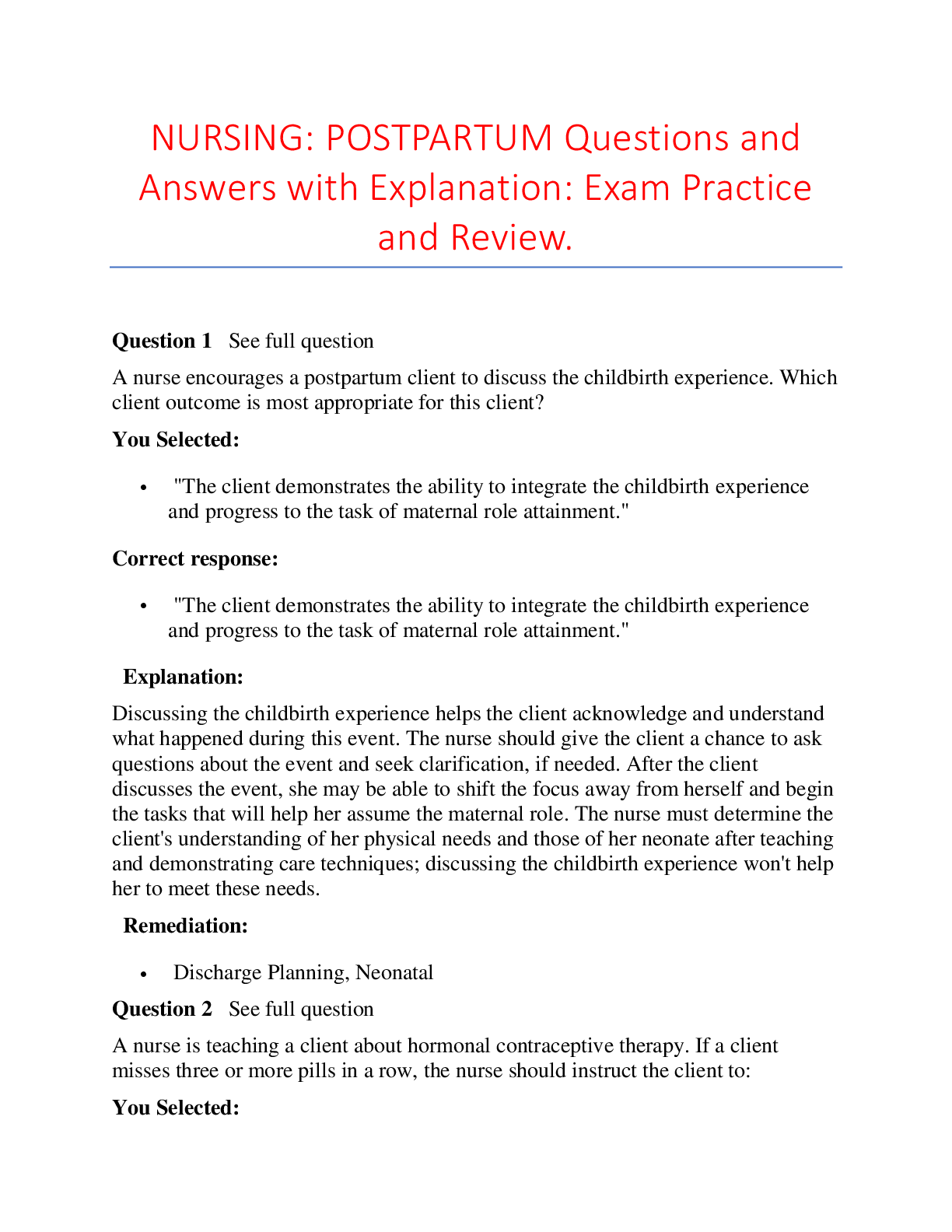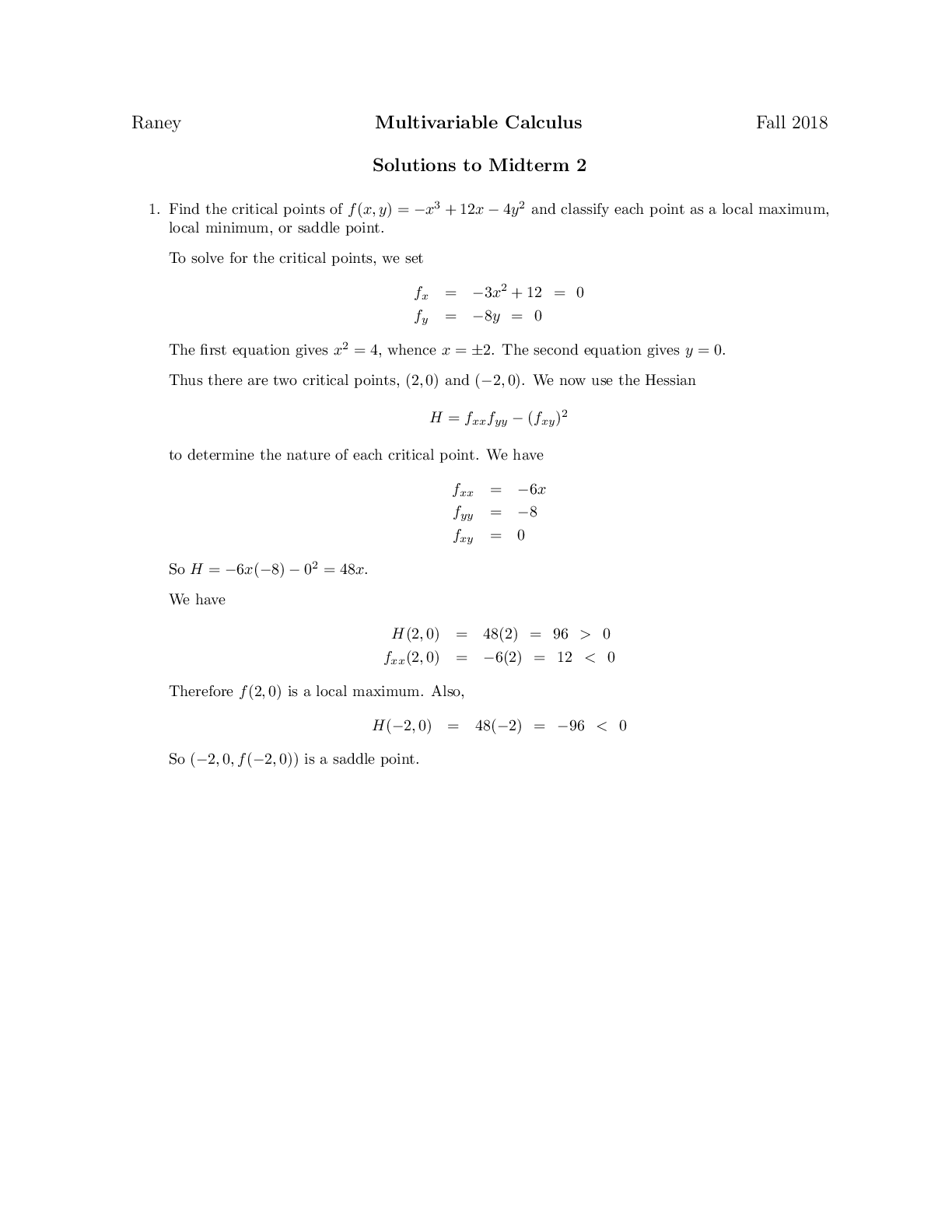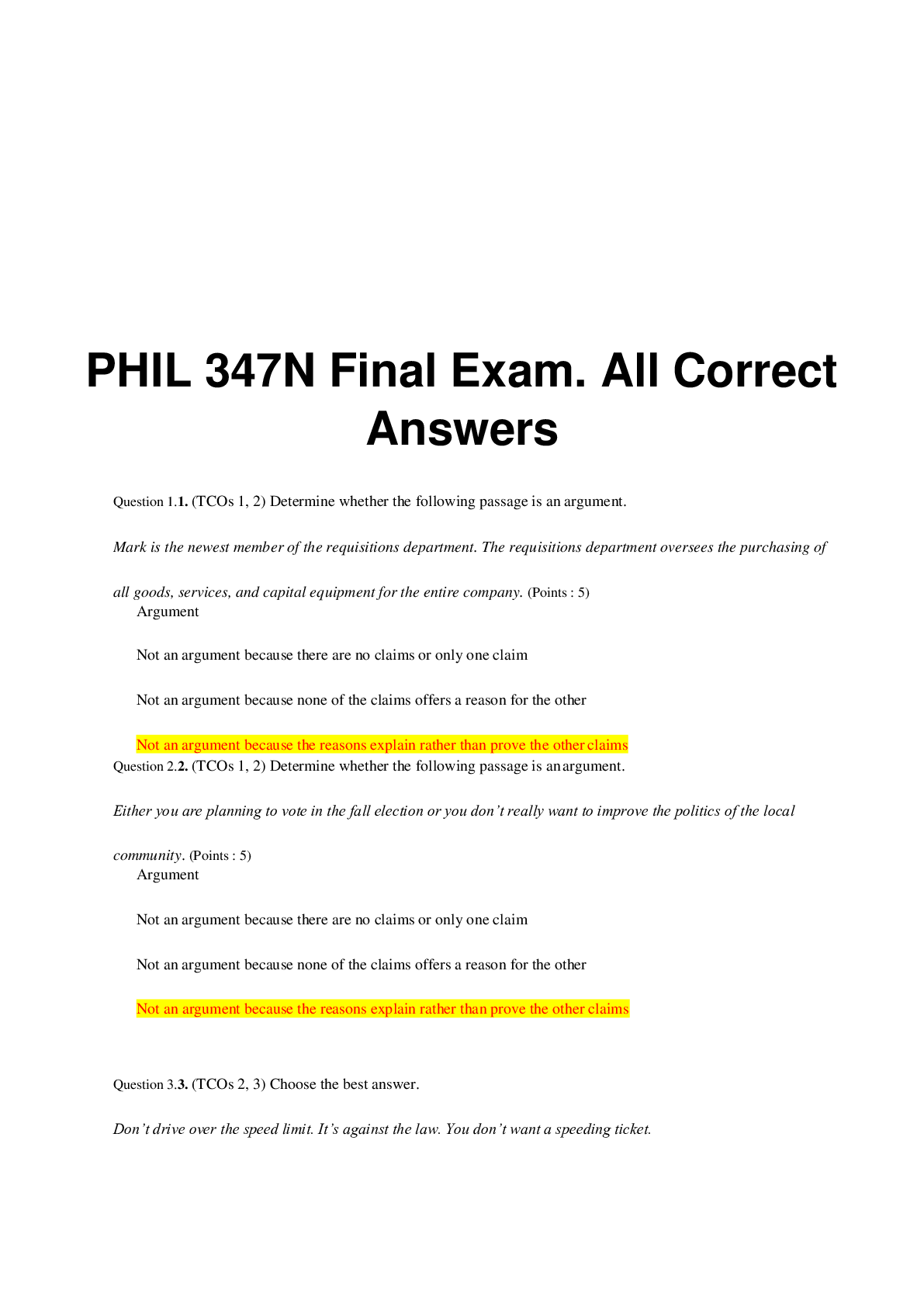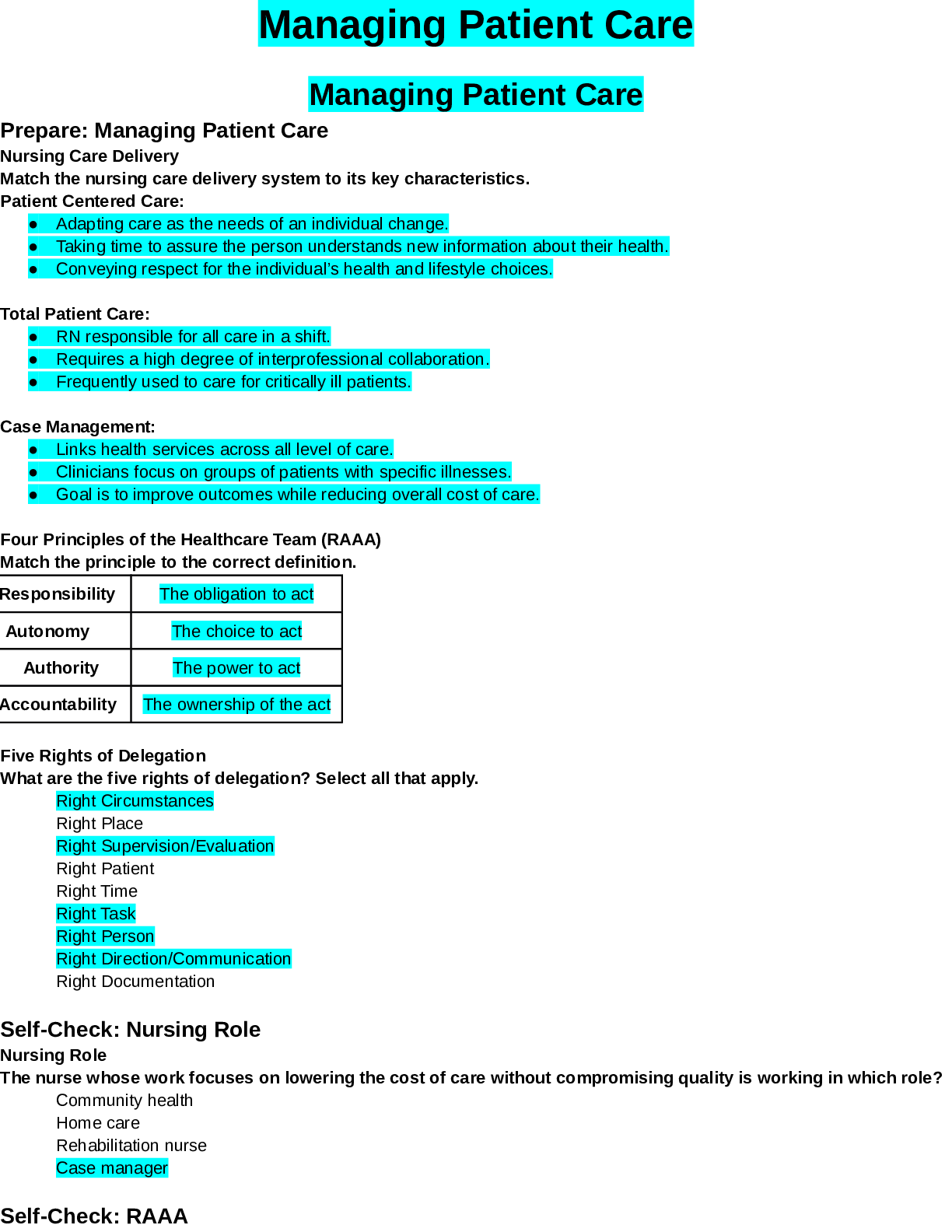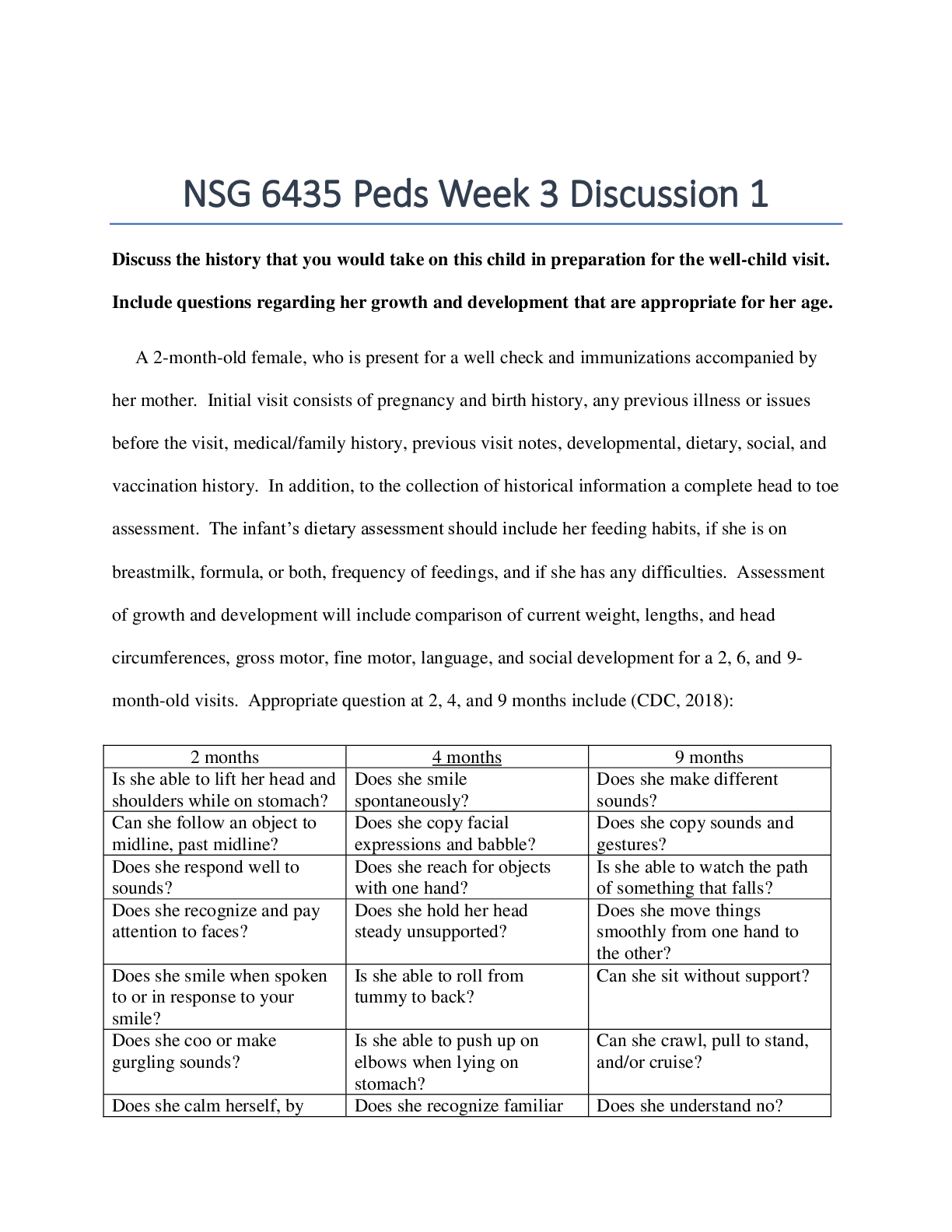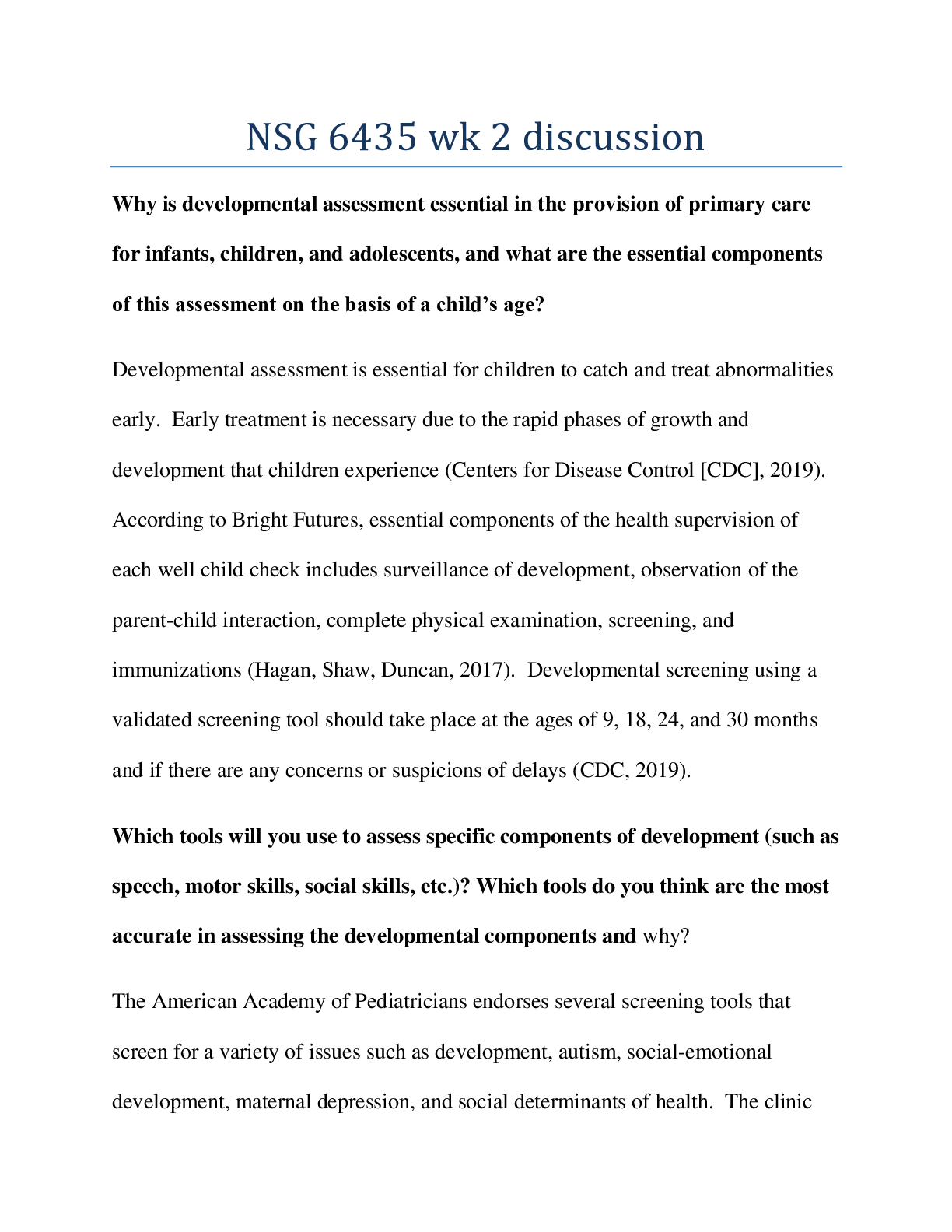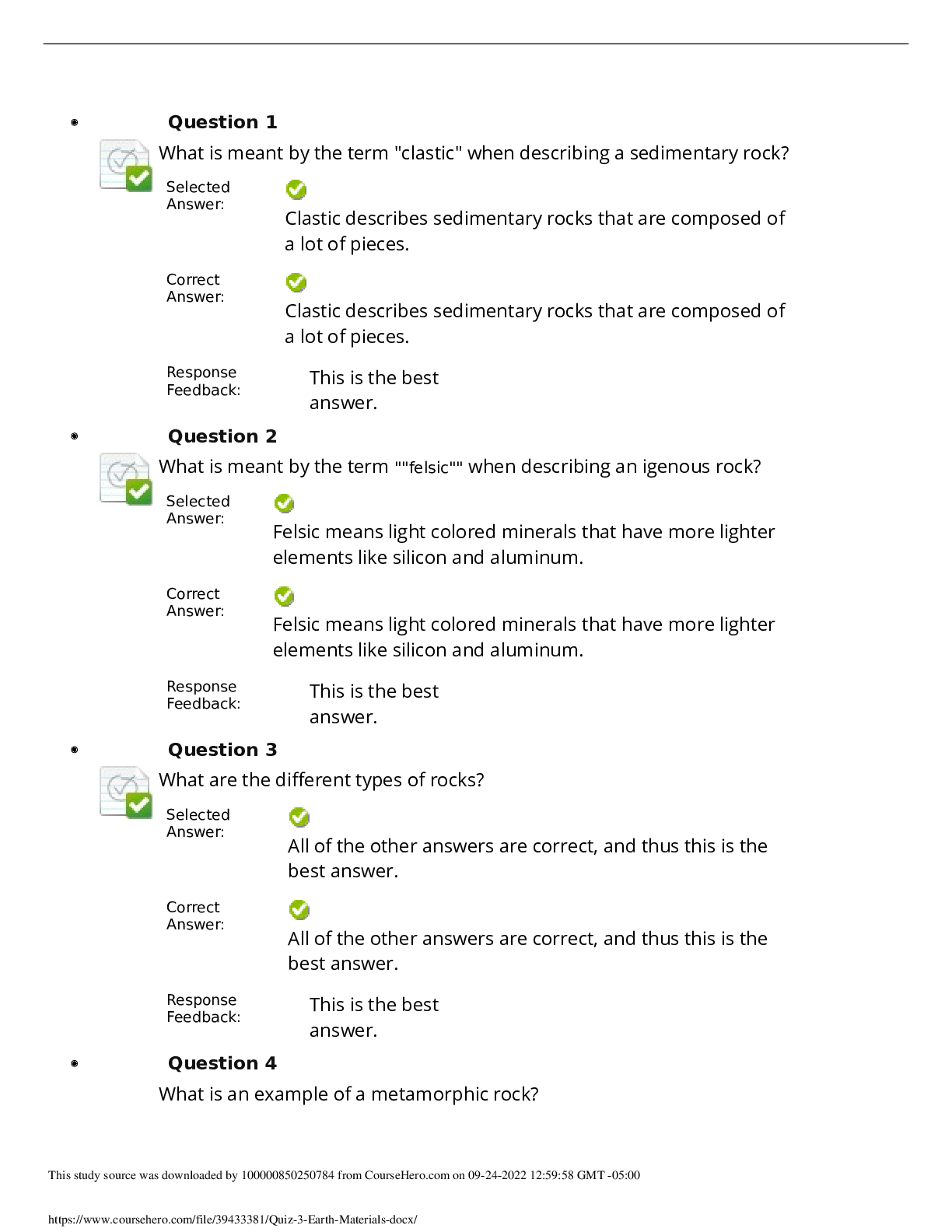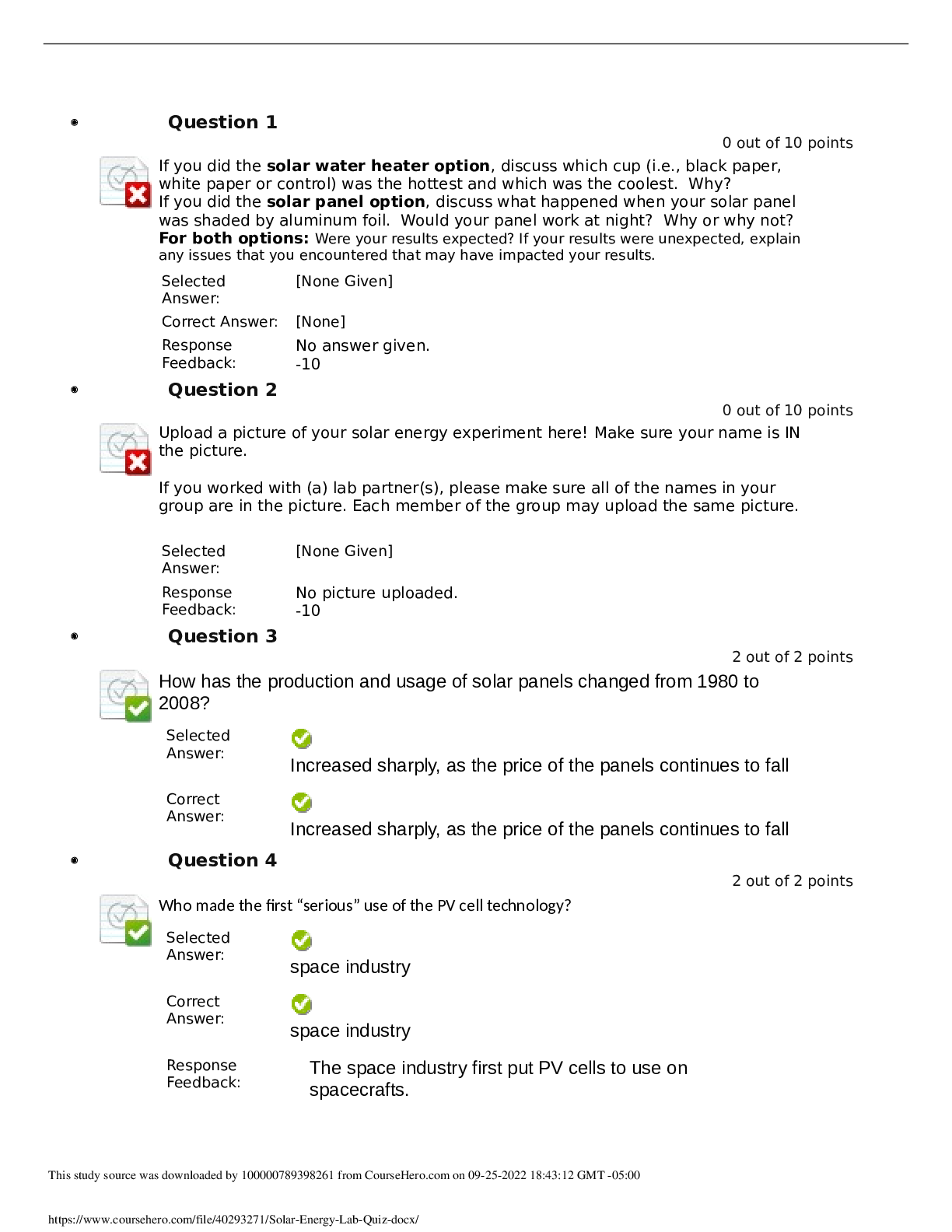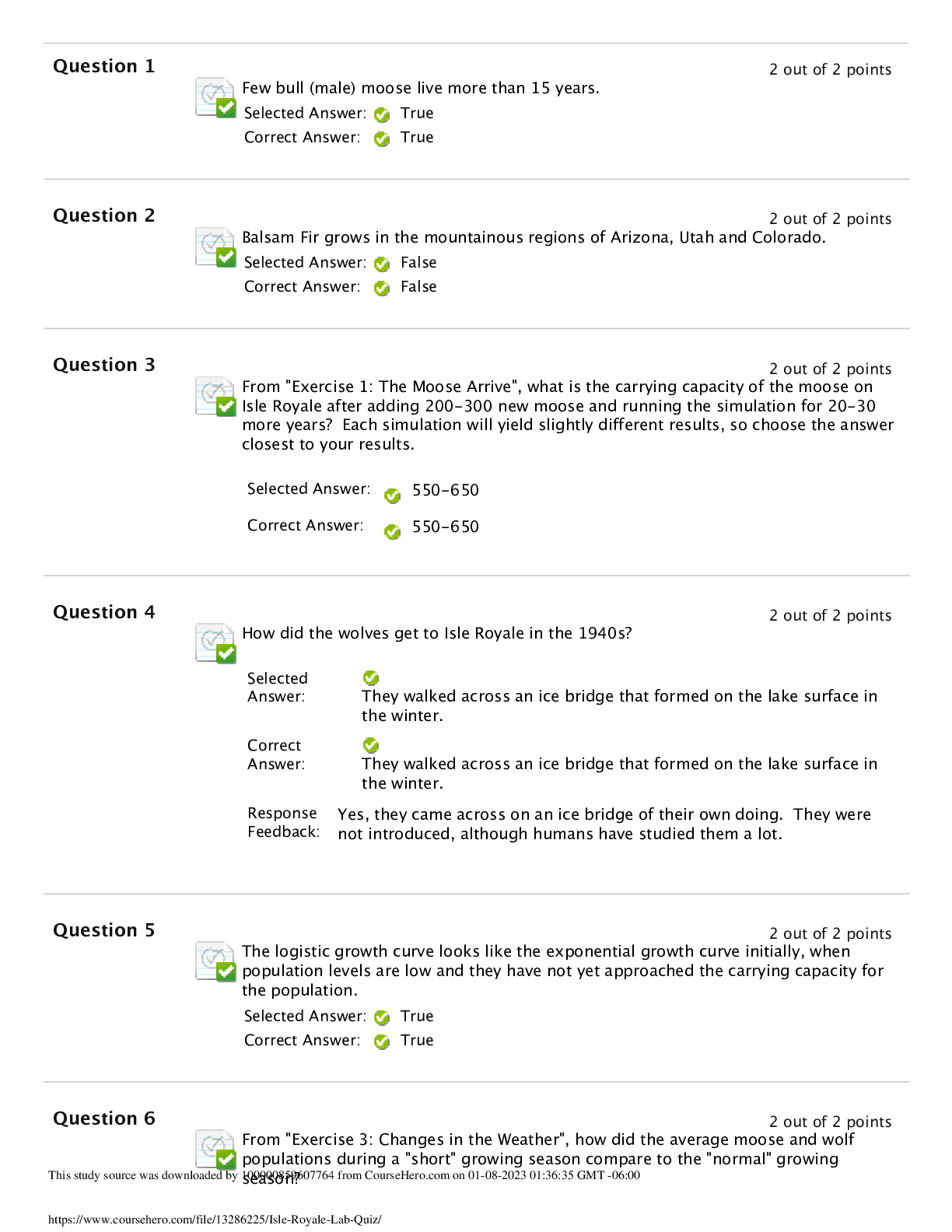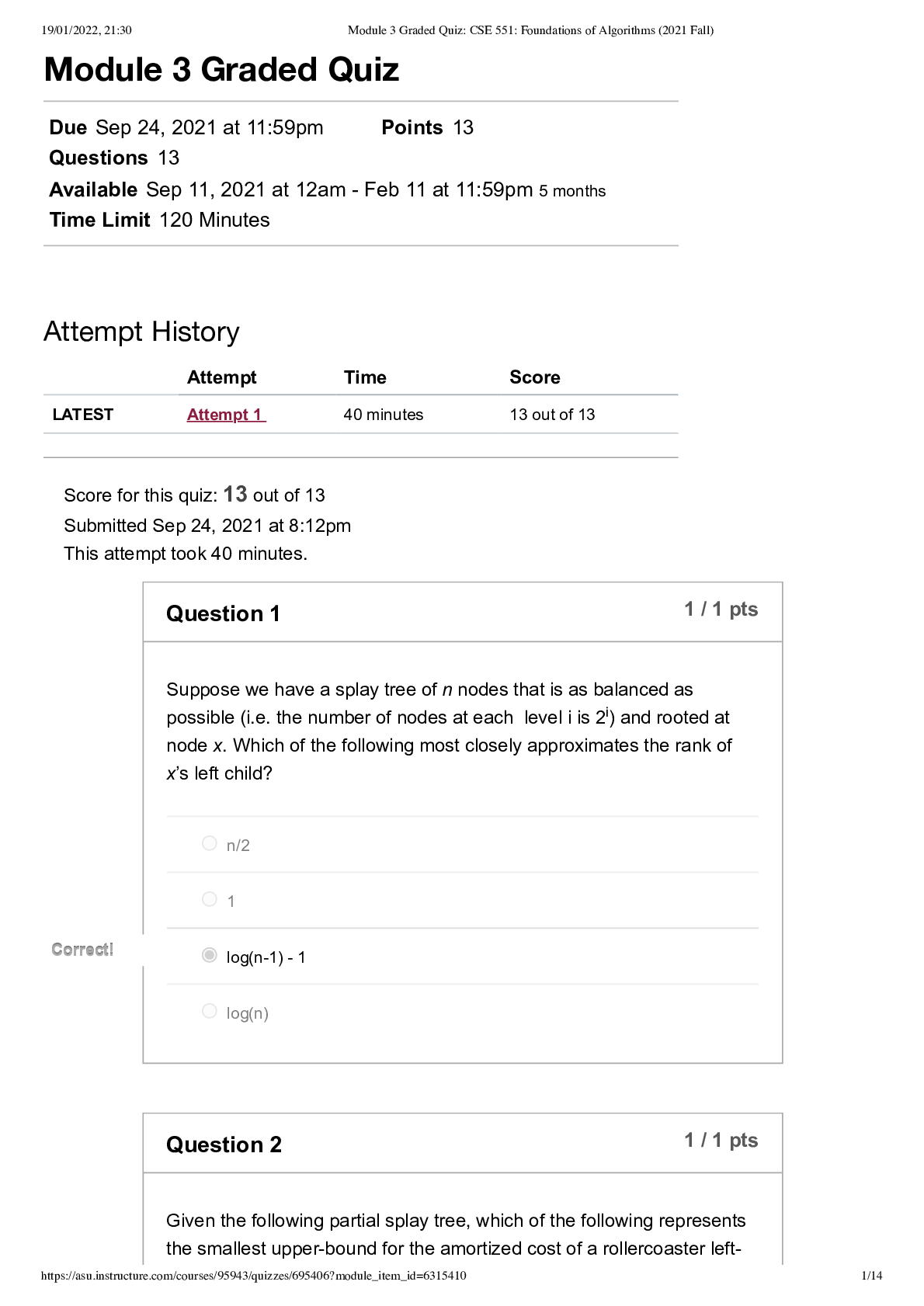Biology > QUESTIONS & ANSWERS > BIO 130 Extra Credit- Isle Royale Lab Quiz | Arizona State University (All)
BIO 130 Extra Credit- Isle Royale Lab Quiz | Arizona State University
Document Content and Description Below
• Question 1 1 out of 1 points In population growth mathematical models, the letter "K" stands for ______________. carrying capacity carrying capacity Answer Feedback: Yes, K is the ... "maximum number of individuals of that species that the local environment can support at any particular time". • Question 2 1 out of 1 points How did the wolves get to Isle Royale in the 1940s? They walked across an ice bridge that formed on the lake surface in the winter. They walked across an ice bridge that formed on the lake surface in the winter. Response Feedback: Yes, they came across on an ice bridge of their own doing. They were not introduced, although humans have studied them a lot. • Question 3 1 out of 1 points From "Exercise 1: The Moose Arrive", what is the carrying capacity of the moose on Isle Royale after adding 200-300 new moose and running the simulation for 20-30 more years? Each simulation will yield slightly different results, so choose the answer closest to your results. 550- 650 550- 650 • Question 4 0 out of 1 points From "Exercise 3: Changes in the Weather", how did the average moose and wolf populations change under a "Long" growing season BEFORE any went extinct? Less moose and less wolves in the longer growing season More moose and more wolves in the longer growing season • Question 5 1 out of 1 points Few bull (male) moose live more than 15 years. Tru e Tru e • Question 6 1 out of 1 points From the Starting Up section, "A moose CANNOT swim fast enough to win a swimming medal in the Olympics (where the fastest speeds are around 5 miles/hour)." Fals e Fals e Response Feedback: Moose can swim up to 6 miles/hour, which is faster than human Olympic swimmers. They have powerful legs!! • Question 7 1 out of 1 points Balsam Fir grows in the mountainous regions of Arizona, Utah and Colorado. Fals e Fals e • Question 8 1 out of 1 points In "Exercise 1: The Moose Arrive," what was the approximate size of the stable moose population (i.e., the carrying capacity)? Note, each simulation is unique and will give slightly different results, so pick the answer that is closest to your results. 550- 650 550- 650 • Question 9 1 out of 1 points From "Exercise 3: Changes in the Weather," the "paradox of enrichment" was seen in the simulation when the populations oscillated more dramatically (both up and down) with a longer growing season, which led to extinction of some species. Tru e Tru e • Question 10 1 out of 1 points The logistic growth curve looks like the exponential growth curve initially, when population levels are low and they have not yet approached the carrying capacity for the population. Tru e Tru e [Show More]
Last updated: 11 months ago
Preview 1 out of 3 pages

Buy this document to get the full access instantly
Instant Download Access after purchase
Buy NowInstant download
We Accept:

Reviews( 0 )
$4.00
Can't find what you want? Try our AI powered Search
Document information
Connected school, study & course
About the document
Uploaded On
Sep 26, 2022
Number of pages
3
Written in
Additional information
This document has been written for:
Uploaded
Sep 26, 2022
Downloads
0
Views
474


